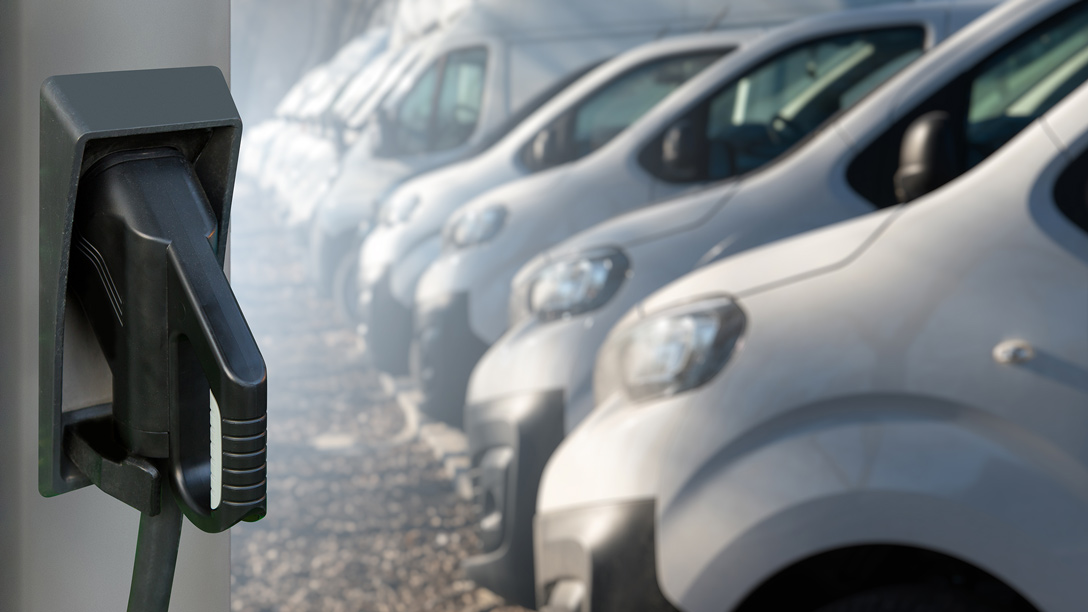With the advent of the world’s favourite van (the Ford Transit) going all-electric, is now the time to consider an all-electric commercial fleet? With huge savings on running costs, upfront costs coming down, and attractive lease deals, there has never been a better time to make the switch.
But do the financials stack up? And what about range anxiety – can electric vehicles really do the job of their Internal Combustion Engine (ICE) counterparts?
How Do The Costs of Running an ICE Van Compare with an Electric Van?
The upfront cost has always been the most significant barrier to electric vehicle uptake. However, with advances in technology and economies of scale, the price of electric vehicles is coming down, albeit slowly. Plus, since many commercial fleet vehicles are leased, the deals offered on electric vehicles are becoming increasingly comparable with those offered on ICE vehicles.
But it’s not just the upfront cost of the vehicle that needs to be considered – it’s the running costs too. And here is where electric vehicles really start to pull away from ICE vehicles, thanks to much lower fuel and maintenance costs.
Lower Fuel Costs on Electric Vans
Electric vehicles don’t cost anywhere near as much to charge as it does to fill up a diesel van. That’s despite the massive jump in electricity prices we’ve seen over the past few years. Based on driving 20,000 miles a year, charging a medium-sized van with a 75kWh battery currently costs £66 per month, whereas running the diesel equivalent costs £266 per month. That’s a saving of £200 per month, or £2,400 per year, per vehicle.
Lower Maintenance Costs on Electric Vans
Of course, electric vehicles have substantially fewer moving parts to maintain. While tyres will always need to be replaced regardless of the vehicle, electric vans don’t require oil changes or other regular services that ICE vehicles do. In fact, electric vehicles often come with much longer service intervals than ICE vehicles – up to twice as long in some cases.
Add it all up, and the total cost of running an electric vehicle is substantially lower than running an ICE vehicle. But what about workplace charging? Surely that must take forever?
How Quickly Can Electric Vans Be Charged?
The time it takes to charge an electric vehicle depends on the charger you’re using. A standard 7kW home charger will deliver around 30 miles of range per hour of charge, meaning leaving it overnight at a residential address will give you a full battery ready for a day’s work.
If you need to charge more quickly, there are now 22kW–80kW+ rapid chargers available, which can deliver a 10-80% charge in around 40 minutes. Depending on your electricity supply at your commercial premises, you could potentially have a charger installed that can deliver a full charge in the time it takes your employees to have their lunch break.
So, there really is no excuse for range anxiety when it comes to electric vans these days. No matter your specific requirements, there is an electric van and a charging solution to match. Plus, there’s grant money available to help with both the purchase and installation of chargers.
What Financial Incentives Are Available to Switch My Fleet to Electric?
In addition to the fuel and maintenance savings we’ve already discussed, there are several other government-backed schemes to help you make the switch to an all-electric fleet.
The Workplace Chargepoint Scheme (WCS) is a government grant for workplace EV chargers, provided by the Office For Low Emission Vehicles (OLEV). The funding allows companies to claim up to £10,000 in support by providing £350 off the combined purchase and installation cost of an EV charger, up to a maximum of 40 chargers (40 single socket or 20 double socket charge points).
It’s available to any business, charity or public body in England, Scotland or Wales, with a few exceptions. If you think your business might be eligible for the scheme, you can check here.
There are also residential charge point funding schemes available if you want to install one at a private dwelling. However, the Electric Vehicle Homecharge Scheme (EVHS) is now defunct, with the new EV Charge Point Grant only open to individuals living in flats (incl. leasehold flats) and rental accommodation as well as non-resident building owners (incl. landlords and social housing providers).
So, if you are looking to switch your business fleet to all-electric, there are a number of financial incentives available to help with the costs.
Speak to Applegarth Electrical Today to Discuss Making the Switch to An All-Electric Fleet
If you want to learn more about what you’ll need to switch to an all-electric fleet, including charging infrastructure, get in touch with us today.
We’re always happy to answer any questions you might have and offer our expert advice. We can also put you in touch with one of our commercial charge point installation project managers to discuss your specific requirements in more detail.
Call us today on 0151 649 8350 or email us at info@applegarth.co.uk to find out more.







